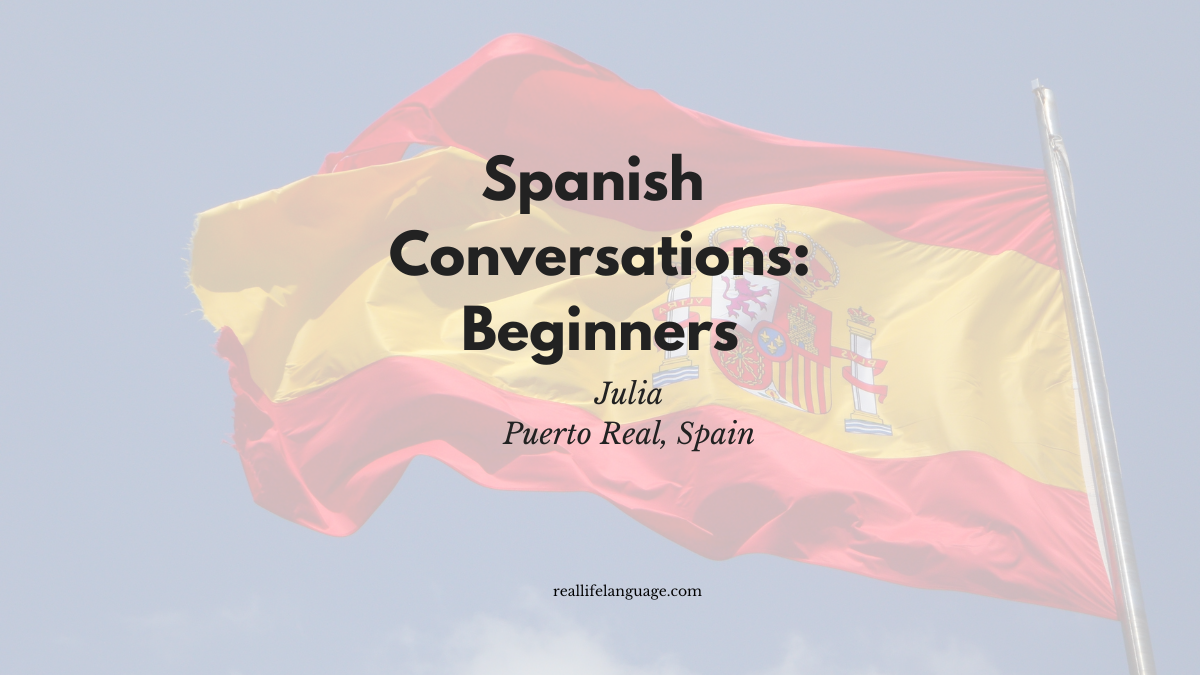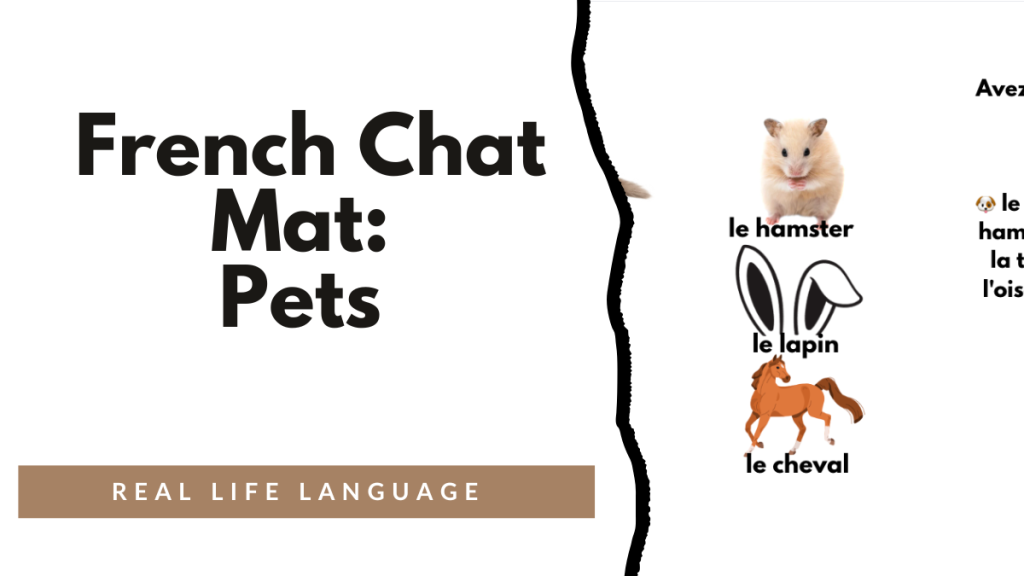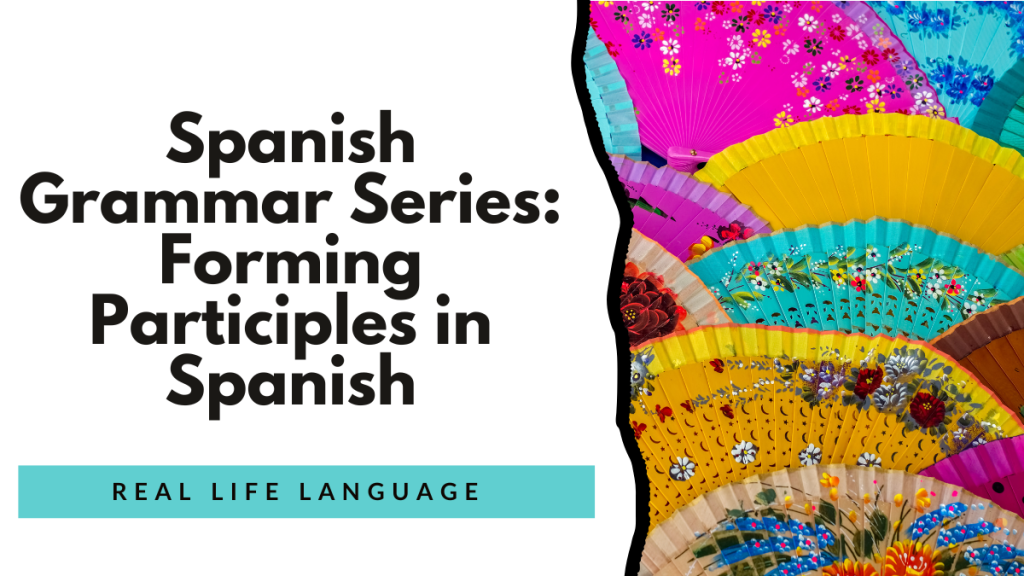
This article helps learners to learn Spanish through an everyday conversation with Julia, a 23-year-old teacher from Puerto Real in southern Spain. The interview covers introductions, family, daily routines, hobbies, food, and local culture — all excellent material for practising realistic vocabulary and phrases. Below is a structured summary plus useful expressions and example sentences learners can use right away.
About Julia: quick facts and useful phrases
Julia was born on 21 September, and lives in Puerto Real. She lives with her parents and a younger sister, Lourdes (16). She works as a teacher, gives Spanish and English classes — mainly in the afternoons — and hopes to study for a master’s degree in the future.
- Useful phrase: “Me llamo Julia.” — My name is Julia.
- Useful phrase: “Tengo 23 años.” — I am 23 years old.
- Useful phrase: “Vivo en Puerto Real, en el sur de España.” — I live in Puerto Real, in the south of Spain.
Personality, appearance and languages
Julia describes herself as having a strong character: generous, affectionate, a little stubborn and sometimes impatient. Physically, she says she is tall with long red hair and big brown eyes. She speaks Spanish and English fluently and a little German. She also notes that in southern Spain people speak Castilian with a strong regional accent.
- Describe yourself: “Soy generosa y cariñosa.” — I am generous and affectionate.
- Languages: “Hablo español e inglés.” — I speak Spanish and English.
Daily routine, work and study
Typical days start around 8–8:30, with a little exercise, breakfast, and then work. After finishing classes, Julia relaxes with TV or reading, or finishes any remaining work. Weekends are for fresh air: walks, family time, terraces and drinks with friends. During holidays she studies languages she didn’t have time for, visits beaches and travels in Europe.
- Daily verbs: levantarse (to get up), desayunar (to have breakfast), trabajar (to work), dormir (to sleep).
- Example: “Me levanto a las ocho y hago algo de deporte.” — I get up at eight and do some exercise.
Hobbies, sport and culture
Hobbies include writing poetry (and the dream of writing a novel), listening to music, watching series, learning languages, and travelling. For exercise she likes cardio, Zumba and kickboxing. Popular sports in Spain are football (soccer), basketball and tennis. Her favourite movie is Dances with Wolves, which moved her because of its themes about Native American culture and history.
- Hobby phrase: “Me gusta escribir poesía.” — I like to write poetry.
- Sport phrase: “Hago cardio y a veces kickboxing.” — I do cardio and sometimes kickboxing.
Food, shopping and city life
Julia’s favourite meal is noodles with chicken and soy sauce, but she also describes Spanish cuisine as rooted in the Mediterranean diet: many vegetables, fruit, cooking with olive oil and wine. Shopping is still done in physical stores, but online shopping is increasingly popular because it is easy and quick. Puerto Real is a small city with beautiful beaches and sunsets — quiet for young people but full of natural spaces.
- Food phrase: “En España comemos muchas verduras y fruta.” — In Spain we eat a lot of vegetables and fruit.
- Shopping phrase: “La gente compra por internet porque es más rápido.” — People shop online because it is faster.
Practical vocabulary and conversation starters to help learn Spanish
Below are ready-to-use phrases from the conversation and simple questions learners can practise aloud.
- “¿Cómo te llamas?” — What is your name?
- “¿De dónde eres?” — Where are you from?
- “¿Cuándo es tu cumpleaños?” — When is your birthday?
- “¿Tienes hermanos?” — Do you have siblings?
- “¿A qué te dedicas?” — What do you do (for work)?
- “¿Qué te gusta hacer en tu tiempo libre?” — What do you like to do in your free time?
- “Me gusta…” + activity — I like to…
- “No me gusta…” + activity — I don’t like to…
Short practice dialog (useful for beginners)
- A: “¿Cómo te llamas?” — B: “Me llamo Julia.”
- A: “¿Qué haces?” — B: “Soy profesora y doy clases de inglés.” — I am a teacher and I give English classes.
- A: “¿Qué te gusta hacer los fines de semana?” — B: “Salir, pasear y estar con la familia.” — To go out, walk and be with family.
Conclusion
This everyday conversation is an ideal way for beginners to learn Spanish vocabulary and phrases for introductions, routines, hobbies and local culture. Practising these short dialogues and vocabulary lists will help build confidence in speaking and listening. To continue learning, replay the conversation, repeat the phrases aloud and try to create your own answers. Keep practising to learn Spanish naturally and confidently.
100s of videos to learn Spanish:

